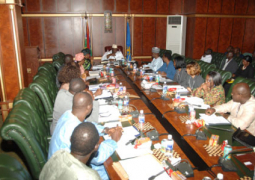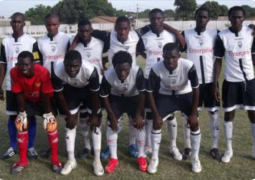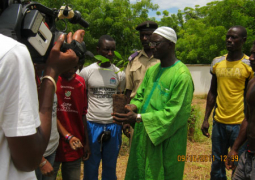
Speaking at the launching ceremony, Suwareh Jabai, the Executive Director of CWG, said Gambia ratified the United Nations Framework Convention on Climate Change (UNFCCC) in 1994, committing the country to the adoption and implementation of policies and measures mitigating the causes of climate change and adapting to its adverse effects.
Following the signing, he added, The Gambia took measures to protect people from climate change impacts, and government provided discussion of measures to mitigate emissions in the energy sector, vulnerability and promising adaptation measures in key socioeconomic sectors, as well as other activities contributing to building resilience to climate change.
He said the fast and total commitment of the government to climate change was because The Gambia is among those countries that are most vulnerable to climate change.
As a low-lying country, climate change poses major development challenges as productive sectors such as agriculture, forestry, wildlife and tourism, which would be adversely affected by rises in sea level.
It has been estimated that more than 80 per cent of the country’s domestic energy comes from biomass (wood), Jabbi went on.
He said the combustion of biomass releases large quantities of carbon dioxide into the atmosphere, adding that Climate Watch-The Gambia (CWG) was, therefore, registered in December 2014 as a non-profit organization to complement the government efforts.
It was registered by people with climate change work experience, who sat together and agreed to assist in the little way that they could by establishing an organization, he said.
Jabbi added that the organization is to help protect coastal people from the negative impacts of climate change, through close collaboration and participation in the control and management of climate change impacts.
“We are focusing on agriculture, fishing, energy and health,” he said, adding that support would be given to people living around the coast and rice growing areas.
The vision and mission, therefore, is to work toward mitigating negative climate change impacts on the livelihood of people, particularly women and children; bring people of the coastal area prone to climate change and protect their communities from negative climate change impacts; improve fish production and processing, using high standard processing methods; and maintain cohesive bond between coastal communities and other communities, he said.
He said the programme is outlined in the CWG five-year business plan, focusing on plans to strengthen community initiatives, the leadership, coordination of community members’ development activities and service delivery to the people.
Jabbi further stated that the population (women and children) in the coastal areas and the hinterland are the major targets of the CWG.
He said women are engaged in agriculture, petty trade, fish processing and marketing, adding that these women are also responsible for domestic water consumption, which has a direct link with climate change such as flooding and, in extreme conditions, drought.
He said in severe climate conditions, the education, livelihood, and other social activities of the children are affected.
Read Other Articles In Article (Archive)

Jammeh hold talks with food security and disaster management stakeholders
May 10, 2013, 9:39 AM



